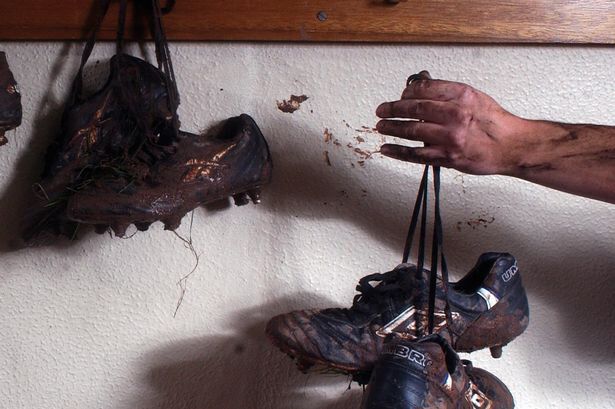
It’s no secret that many children dream of becoming a professional sports star when they grow up. A life that is characterised by fame, wealth and the ability of making a living from doing what you love is sure to appeal to many.
Some get to live out this dream, many escaping a life of poverty and hardship in doing so. Be it Ashwin Willemse, who played international rugby for South Africa despite being part of a criminal gang in his younger years or Kassim Ouma, who became a professional boxer despite being a child soldier in Uganda, there are no lack of inspirational stories in sport.
However, not every dream comes true. The vast majority of starry-eyed kids who hope to become the next Lionel Messi will find that they are either not skilful enough, not fast enough, not strong enough, or a mixture of all of the above.
According to the book ‘No Hunger In Paradise. How to Make It As A Professional Footballer’ by Michael Calvin only 180 of the 1.5 million players who are playing organised youth football in England will make it as a professional in the Premier League, a success rate of 0.012 per cent.
Even children who enter football academies at a young age have the odds firmly stacked against them. Of all the boys who enter a football academy at the age of nine, less than half of one per cent make it.
Third-year Sport Science and Health student Coly O’Brien spoke to The College View about his dreams of playing professional football. “When I was really young I went through phases of what I wanted to do when I was grown up. I had stages of wanting to play football professionally in like the Premier League or something, but I also had phases where I wanted to be like a detective or forensic scientist, so it depended on my age.”
O’Brien said he came to the full realisation that he wouldn’t make it around the age of 15 or 16, although he was never convinced he would become a professional.
“I probably always realistically knew I was never going to make the Premier League because only a very small percentage of people do and the fact that I wasn’t playing anywhere near the level I should’ve been at the time.”
Although his football aspirations are in the past, there may still be time for O’Brien to become a detective, although he is not currently pursuing this option. He is certainly not alone in putting aside a dream of becoming a professional sports star for something more realistic.
Third year St. Patrick’s College geography and history student Sean Baxter had no doubt in his mind when stating he would prefer to be a professional footballer rather than pursue a career affiliated with his current degree.
While Baxter never believed he would make it as a professional footballer the goal of playing gaelic football for Dublin at an inter-county level was more feasible for him.
“When I was 13 or 14 I wanted to try to make a minor team and always in the back of my mind playing senior was the dream, but I knew it wouldn’t really be the reality.”
Baxter could at least take comfort in knowing that he wasn’t alone in not playing at the level required to make the Dublin senior panel. While playing for his school team in fifth year, he recalled the team manager telling his players that “none of them would ever play for Dublin.”
While maybe not the most inspiring words a manager can give to his young team, it has proven to be correct at this point in time.
The dream of playing inter-county football for Baxter is now firmly dead in the ground, although he did say, “I definitely think I’d be able to make a panel in the likes of Leitrim, Waterford or Louth.”
However, life isn’t perfect if you do make it as either a professional sportsperson or inter-county GAA player. Many players crumble under the pressure of having thousands and sometimes even millions of people’s hopes and dreams on their shoulders.
Crusaders and New Zealand fly half Richie Mo’unga for example has spoken about the effect the pressure of performing to a high standard has had on him during his career.
Back in 2016 Mo’unga, who was only 22 years old at the time, revealed part of his pre-game routine. “The only thing that’s weird about my pre-game is before I run out I sort of sit on the toilet and just sort of make myself spew up a little bit.”
Mo’unga put this down to the nerves he experiences before running out, as well as his desire to feel “light” for the game. While professional sportsmen are often quite superstitious when it comes to pre-game preparation, making yourself vomit can hardly be considered a healthy routine.
This pressure can lead to athletes falling out of love with their chosen sport, viewing it as just a way of making a living rather than living out a lifelong dream. American tennis player Andre Agassi, widely considered to be one of the greatest tennis players of all time, wrote in his autobiography ‘Open’, “I play tennis for a living even though I hate tennis, hate it with a dark and secret passion and always have.”
However, athletes such as Agassi who detest their sport are likely few and far between. Although he may have been less than fond of tennis, his career earnings of $31.2 million isn’t bad for twenty years of work as a tennis player.
Being a professional sportsperson will always be a dream for many young people and will likely continue to be a dream for them as they enter their middle-aged years and beyond.
Eoin Harte
Image Credit: Northwalesruc.com
